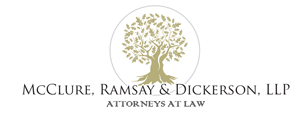When you are appointed as a personal representative who oversees a Georgia estate, you have a great deal of responsibility.
A personal representative is someone chosen by the testator, or the deceased individual who created the will. A personal representative is typically named in the testator’s will.
Your main purpose as a personal representative is to carry out the wishes of the testator according to the terms of their will. This involves many different tasks.
Assets and debts
Your first responsibility is identifying and gathering the testator’s assets, which can include real estate, personal property, bank accounts or investment accounts.
This step can take more time than you initially realize, especially if the testator did not keep a list of their assets. You must track down all assets.
You must then do the same with the testator’s debts. This includes all debts, such as mortgages, car loans or credit card debt. You are responsible for tracking down all the debts and determining if they will be forgiven due to the testator’s death.
Many times, the debts will not be forgiven, and you may end up selling assets to pay the debts. Any remaining assets must be distributed to the heirs according to the terms of the will or Georgia’s probate laws.
Taxes and closing the estate
Depending on the circumstances, you may also be required to file one final tax return for the testator and pay any outstanding tax debt.
Once these steps are complete, you are generally in a position where you can close out the estate. Only then are your duties and responsibilities complete.
It is natural to feel proud over being chosen as personal representative, since it means the testator saw you as someone to be trusted with many duties and responsibilities.
However, there are some things you should know about being a personal representative. First, you do not have to agree to be a personal representative if you do not want to.
Think carefully before agreeing to be a personal representative
As you can see from the steps above, being a personal representative involves taking care of many different things. The process can be complicated, and you might feel overwhelmed at the idea of taking on such a huge responsibility.
Keep these things in mind before you agree to be named as a personal representative for someone. Once you are listed in their will as the representative, it may be difficult or impossible to get out of the role.
Potential personal liability
One of the most important things you might not realize about being a personal representative is that you could be personally liable for certain things.
It is essential to follow all steps in the right order, which usually means paying debts and taxes before distributing assets to heirs. If you distribute assets first and there are still debts or taxes owed, you could end up being responsible for those.
Additionally, sometimes a personal representative is given a small amount of money for their duties to cover the expenses involved in administering the estate. This is not a guarantee, so you should anticipate potentially having to pay some expenses yourself.
Dealing with heirs
Prepare yourself to handle potential disputes with heirs. They may bombard you with questions and demands about receiving assets.
Be upfront with them about the laws involved you must adhere to and where you are in the process. This will hopefully prevent disputes.
Whether you are considering being a personal representative for someone or are already engaged in the process, it is best to have professional guidance along the way.
